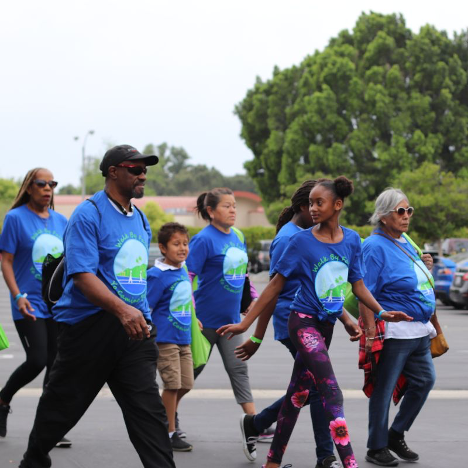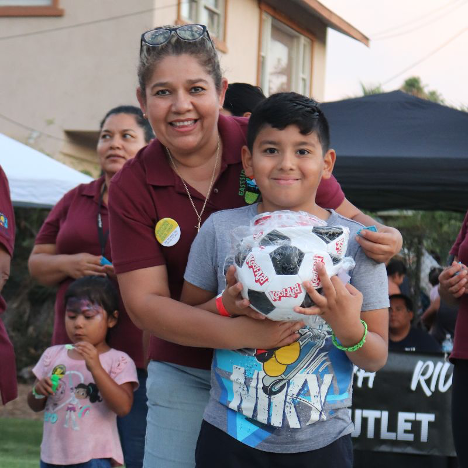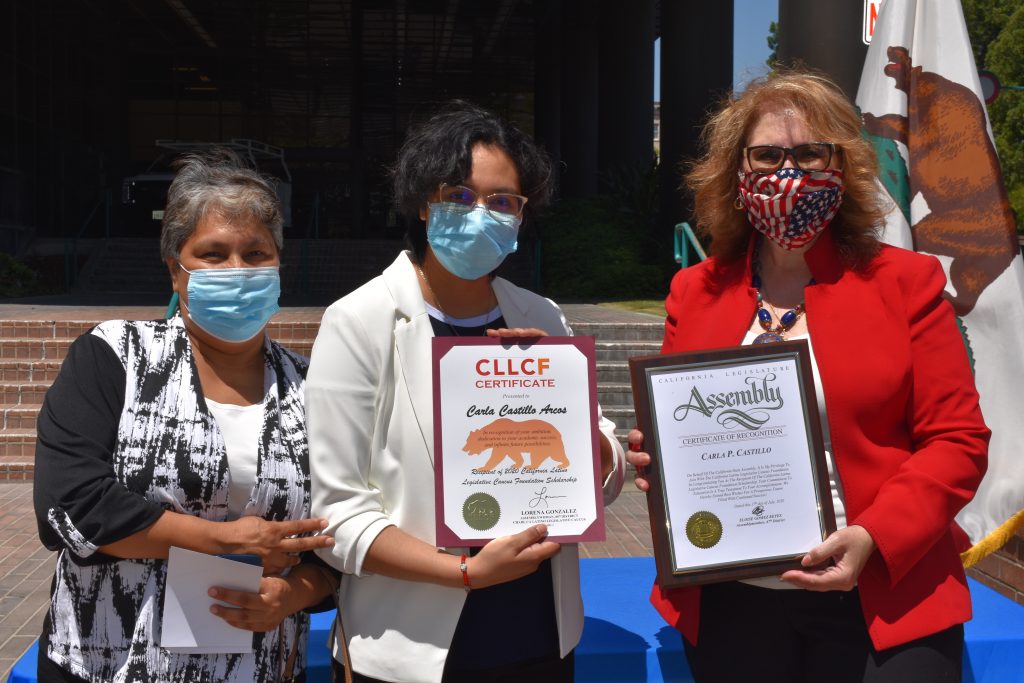The Transformative Climate Communities and Affordable Housing and Sustainable Communities grants will fund integrated and sustainable transit, affordable housing, and urban greening in the Eastside Community.
RIVERSIDE, CA— The California Strategic Growth Council awards $31.2 million to the City of Riverside for the Eastside Climate Collaborate project, which will fund affordable housing, sustainable transportation infrastructure, transit rail access (including bus stops and solar walkways), free bus passes, solar power installation, urban greening projects, community engagement, displacement avoidance, and various workforce development initiatives.

The grants were the result of community-based efforts to empower Riverside’s Eastside neighborhood by creating new economic opportunities and improve the health and well-being of the neighborhood residents through cross-sector collaboration and community engagement led by Riverside Community Health Foundation (RCHF) through the Eastside Healthy Eating, Active Living or HEAL Zone (EHZ) and the Chicago-Linden Project. As a part of the multi-level stakeholder engagement, RCHF’s role through the EHZ is to encourage, support, and foster the community voice in the planning, implementation and evaluation of the proposed projects in the Eastside Climate Collaborative project.
The Eastside HEAL Zone was established in 2012 with a vision of a community driven effort towards social, cultural, and physical environmental changes that would shift the community towards healthy eating and active living as a way of life. Over the years, the resident led initiative has trained over 40 residents in community advocacy through the Riverside Leadership Academy, facilitated the conversion of 4 corner stores into healthy food markets, helped improve 4 parks, initiated 2 community gardens, and facilitated nearly 30 community improvement projects, which included the clean-up of alleyways and safe paths for children to walk to school.
The grant applications had significant community input from the Residents of Eastside Active in Leadership (REAL) Group, Healthy Living Project, Eastside Faith Collaborative, Eastside Think Tank, and Lincoln Park Community Group.

“Congratulations to the residents of the of the Eastside who have been so passionate and who have been working so hard to create a healthy community in the Eastside area,” said Dr. Shené Bowie-Hussey, Vice President of Health Strategies and Chief Strategic Officer. “We are getting ready to embark on a pretty large initiative, but it’s nothing you haven’t already done before! This is just another step in creating a healthy community.”
Community engagement activities during the course of the grant will take the form of workshops, monthly meetings, community participation in large project-related events, and recruitment of organizations and networks to assist in data collection and dissemination of information and notices. Community Settlement Association, an affiliate of RCHF, will act as a liaison for Eastside residents and small business and lead activities in displacement avoidance while providing information, training, and workforce development.
Additional partners in the TCC and AHSC grant applications include the County of Riverside Economic Development Agency, University of California, Riverside Center for Environmental Research and Technology, Riverside Community Health Foundation, Riverside Unified School District, GRID Alternatives, Wakeland Housing and Development Corporation, Riverside Transit Agency, Community Settlement Association, Santa Ana Watershed Project Authority (SAWPA), WRCOG, Tree People, and Eastside community groups and community members.

“[We are] optimistic that this grant will enhance the City of Riverside’s Eastside neighborhood and will help elevate the quality of life for the residents of that community,” said Rick Bishop, Executive Director of Western Riverside Council of Governments (WRCOG). “In light of the grant awards, it is WRCOG’s hope that this success will set the pace for jurisdictions, agencies and the private sector to pursue Public-Private Partnerships and multi-agency/jurisdictional collaborations in grant program efforts.”
The collective grant of $31.2 million is the largest amount the City of Riverside has ever been awarded and marks a new historic high.
For more information about the Eastside HEAL Zone or activities, please visit www.rchf.org/ehz. For more information on the TCC and AHSC grant programs, visit https://sgc.ca.gov/programs/tcc/ or https://sgc.ca.gov/programs/ahsc/ or visit the City’s Grant homepage at www.riversideca.gov/eastside.
 Westside Story Newspaper – Online The News of The Empire – Sharing the Quest for Excellence
Westside Story Newspaper – Online The News of The Empire – Sharing the Quest for Excellence

